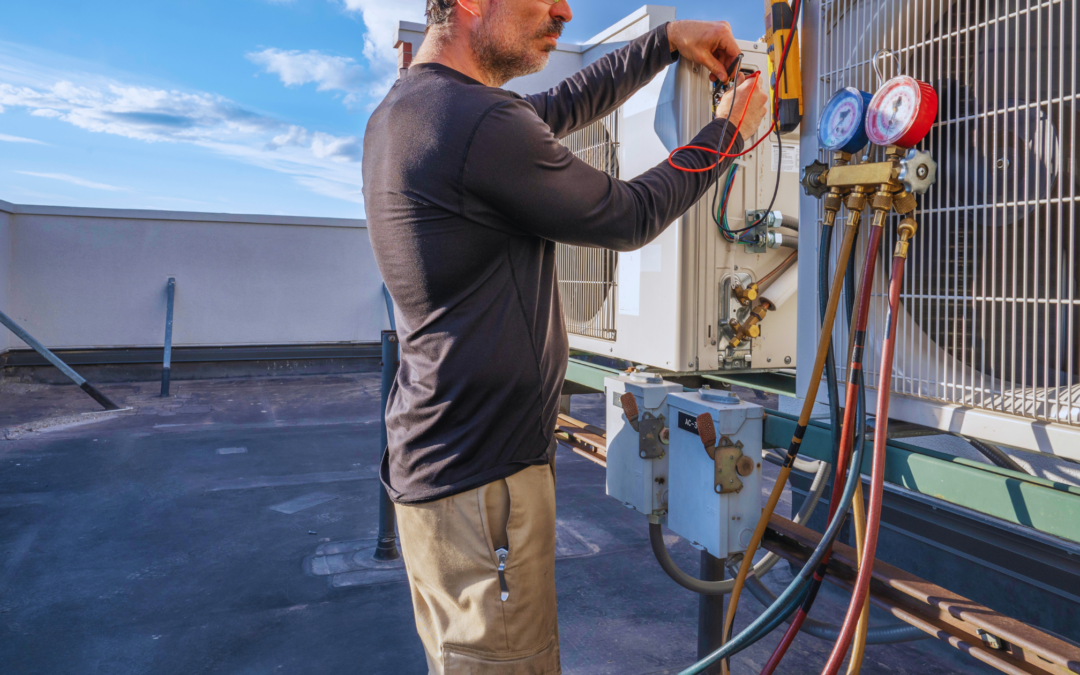Key Takeaways
- Most HVAC certification programs in NJ can be completed in 6 months to 2 years, with trade school programs typically lasting 6-24 months
- Full certification requires completing formal training, gaining hands-on experience, and passing state licensing exams
- Factors like program type, schedule flexibility, and prior experience significantly impact training duration
Choosing a career in heating, ventilation, and air conditioning (HVAC) opens doors to a stable, well-paying profession that’s always in demand. But before you can start working as an HVAC technician, you need proper training and certification. One of the most common questions prospective students ask is: how long does HVAC training actually take?
The answer depends on several factors, including the type of program you choose, your schedule, and your career goals. Understanding these variables will help you plan your educational journey and set realistic expectations for entering the HVAC field.
Types of HVAC Training Programs
Trade School Programs
Trade schools offer some of the most comprehensive HVAC training available. These programs typically range from 6 months to 2 years, depending on whether you’re pursuing a certificate or an associate degree.
Certificate Programs: Usually take 6-12 months to complete when attending full-time. These programs focus on essential skills like system installation, maintenance, and repair techniques.
Associate Degree Programs: Generally require 18-24 months of full-time study. These programs provide more in-depth training and often include additional coursework in business fundamentals, advanced troubleshooting, and emerging technologies.
A reputable NJ trade school will structure their curriculum to cover both theoretical knowledge and hands-on practice. Students learn about electrical systems, refrigeration cycles, ductwork design, and safety protocols through a combination of classroom instruction and lab work.
Community College Programs
Many community colleges offer HVAC programs that mirror trade school offerings. These typically take 1-2 years to complete and may offer more flexible scheduling options for working adults.
Apprenticeship Programs
HVAC apprenticeships combine classroom learning with on-the-job training. These programs usually last 3-5 years, with apprentices spending about 144 hours per year in classroom instruction while working alongside experienced technicians.
Online and Hybrid Programs
Some schools offer online HVAC coursework, though hands-on components still require in-person attendance. These programs can take anywhere from 6 months to 2 years, depending on how quickly you progress through the material.
Factors That Affect Training Duration
Full-Time vs. Part-Time Enrollment
Your schedule significantly impacts how long your HVAC training will take. Full-time students typically complete programs faster, while part-time students may take twice as long due to reduced course loads.
Full-time students often finish certificate programs in 6-9 months and degree programs in 18-24 months. Part-time students might need 12-18 months for certificates and 3-4 years for degrees.
Prior Experience and Education
Students with relevant background experience or education may be able to accelerate their training. Some programs offer credit for prior learning or allow students to test out of certain courses.
Program Intensity and Structure
Some intensive programs pack more training into shorter timeframes through longer class days or more frequent sessions. Others spread the same content over longer periods with more manageable daily schedules.
What HVAC Training Covers
Core Technical Skills
HVAC training programs cover essential technical competencies including:
- Electrical fundamentals: Understanding circuits, voltage, and electrical safety
- Refrigeration principles: Learning how cooling systems operate and troubleshooting techniques
- Heating systems: Gas, electric, and oil heating system installation and maintenance
- Ventilation and air quality: Ductwork design, airflow calculations, and indoor air quality management
- System diagnostics: Using tools and techniques to identify and solve problems
Safety and Regulations
Professional HVAC work requires thorough understanding of safety protocols and industry regulations. Training covers workplace safety, handling refrigerants, and compliance with local and federal codes.
Business and Customer Service Skills
Many programs include modules on customer communication, basic business practices, and professional conduct—skills that prove valuable whether you work for an employer or start your own business.
Certification and Licensing Requirements in New Jersey
Completing an HVAC certification program in NJ is just the first step toward becoming a licensed technician. New Jersey requires HVAC professionals to obtain proper licensing, which involves additional steps beyond initial training.
EPA Certification
All HVAC technicians must earn Environmental Protection Agency (EPA) certification to handle refrigerants. This typically requires passing an exam that can be completed during or after your training program.
State Licensing
New Jersey requires HVAC contractors to hold appropriate licenses for the work they perform. While individual technicians may not need licenses for all types of work, many employers prefer hiring certified professionals.
Continuing Education
The HVAC industry evolves constantly with new technologies and regulations. Many professionals pursue ongoing education throughout their careers to stay current with industry developments.
Accelerating Your HVAC Education
Summer and Intensive Programs
Some schools offer accelerated summer programs or intensive courses that allow students to complete training faster than traditional semester-based schedules.
Focused Specialization
Students who focus on specific areas of HVAC work (like residential cooling systems or commercial heating) may complete training more quickly than those pursuing broad, general certifications.
Prior Learning Assessment
If you have relevant work experience or education, ask about prior learning assessment programs that might reduce your required coursework.
Career Outlook and Next Steps
HVAC technicians enjoy strong job prospects, with the Bureau of Labor Statistics projecting faster-than-average job growth for the field. The combination of new construction, system replacements, and increasing focus on energy efficiency creates steady demand for skilled professionals.
After completing your training, you’ll likely start as an entry-level technician or apprentice. Many professionals advance to senior technician roles, supervisory positions, or start their own businesses within a few years of entering the field.
Making Your Training Investment Count
Choosing the right HVAC program requires balancing time, cost, and career goals. Research schools carefully, considering factors like job placement rates, industry partnerships, and the comprehensiveness of their training facilities.
Look for programs that offer hands-on experience with current industry equipment and technologies. The best NJ trade schools maintain relationships with local employers and provide job placement assistance to help graduates transition smoothly into their careers.
Your HVAC training timeline will depend on your personal circumstances, but with dedication and the right program, you can be working as a certified technician within 6 months to 2 years. The investment in quality training pays dividends throughout your career in this stable, rewarding field.

